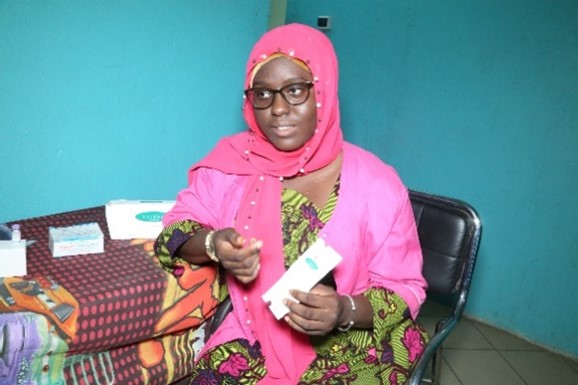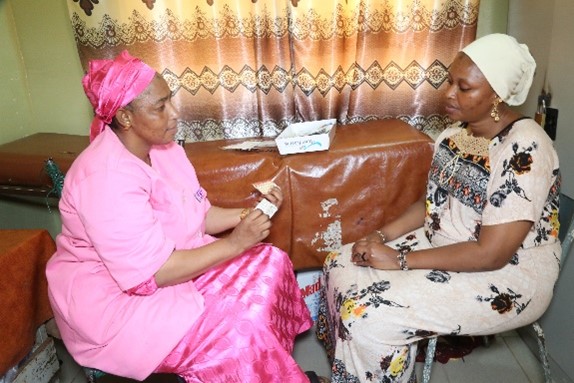By Mariela Rodriguez, Senior Learning and Communications Advisor, MOMENTUM Private Healthcare Delivery/ PSI, Gustave Camara, Director of Information and Communications, PSI Mali, May Namukwaya, Health Services Coordinator, PSI Uganda, Fosca Tumushabe, Advocacy and Communications Officer, PSI Uganda
MOMENTUM Private Healthcare Delivery funded USAID, supports private sector engagement in the delivery of vital healthcare, strengthens how public and private healthcare actors work together, and ensures healthcare information and services are respectful, high-quality and people-centered. Through this work, the program aims to accelerate reductions in maternal, newborn, and child mortality and morbidity in countries around the world.
In many communities around the world, midwives are often the frontline of community-level sexual and reproductive healthcare (SRH). In Mali and Uganda, MOMENTUM partners with networks of private midwives to help them increase community access to and availability of quality SRH services.
We spoke to three midwives working in Mali and Uganda to learn more about how they strengthen local health systems.
MEET SETAN AND FATOUMATA IN MALI
MOMENTUM in Mali works with private sector midwives like Setan and Fatoumata to strengthen their capacity to provide and maintain quality of care in the delivery of SRH services. MOMENTUM also seeks to increase access to family planning services in Mali by increasing availability of SRH products and health education.

“We give the women a warm welcome and provide correct information, especially about reproductive health. [Our work] is about helping women give birth and also to promote health and reduce maternal and infant mortality rates.” –Setan Gassama, Midwife at Cabinet Medical Momo

“It’s about going into the community with advance strategies, often during gatherings; hosting educational talks, and doing home visits…As a midwife, I’m helping to reduce maternal, child and infant mortality and morbidity so that no woman dies in childbirth and so that giving birth brings joy, not sadness.” –Fatoumata Berete, Midwife at Keneyaton Clinic
MEET MIRIAM IN UGANDA
Miriam Nabatanzi Bwete is a midwife at the Biva Maternity and Health Clinic outside of Kampala, Uganda with over 20 years of experience. Miriam is part of the Uganda Private Midwives Association (UPMA) and receives training and support from MPHD. Through MOMENTUM, Miriam and other colleagues from UPMA were trained in person-centered postpartum family planning service delivery, using the Counseling for Choice approach.

“At Biva Maternity and Health Clinic, I take on all roles such as welcoming the clients and setting the right ambiance for them. As SRH is a sensitive topic, I guide clients towards total opening up by actively listening and provoking of details.”

“I also provide relevant information about applicable [contraceptive] methods and the benefits of one over the other, administer the client’s choice method, and even do follow up to ensure that the client is well and happy.”
“People centered care helps me to understand client’s [contraceptive] method of choice, how best the method can be delivered, and the support to be offered.”
By offering person-centered care, Miriam is helping to ensure clients are heard and supported. Strengthening providers’ capacity to deliver quality, person-centered care can promote the localization and sustainability of approaches that lead to positive health outcomes.
Midwives are an essential component of localized SRH care. Engaging with private-sector health providers, like midwives Setan, Fatoumata, and Miriam, helps foster sustainable, person-centered health systems.











